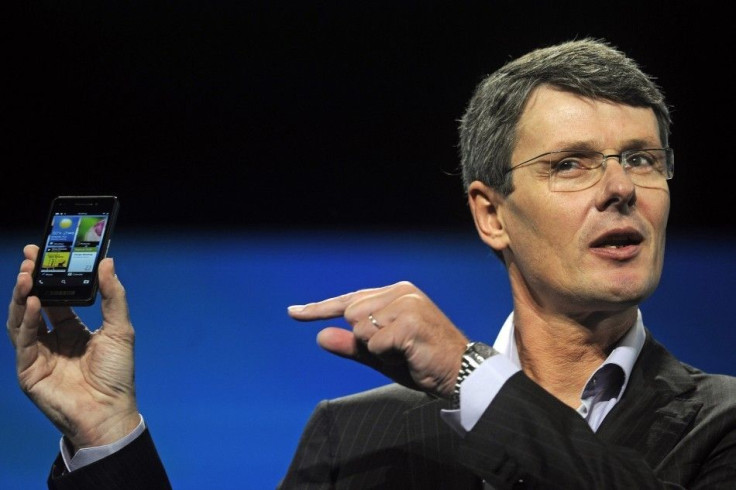RIM Reports Tiny 3Q Profit, Higher Sales
RIM Will Ship BlackBerry 10 On Jan. 30

BlackBerry developer Research in Motion reported a third-quarter net profit from operations, surprising analysts who'd expected a loss.
The Waterloo, Ontario, developer of smartphones and the PlayBook tablet reported net income of $9 million, or 2 cents a share, on revenue of $2.78 billion for the period ended Dec. 1. Analysts had expected a net loss of 36 cents a share on revenue of $2.65 billion.
A year ago, RIM reported a third-quarter loss of $235 million, or 45 cents a share.
On an adjusted basis, though, the overall net loss was 22 cents a share. The losses reflect overall costs related to firing employees and plant shutdowns.
“This is an exciting time,” said CEO Thorsten Heins, 54, who repeated once again his company's plans to ship the next-generation BlackBerry 10 on Jan. 30. It had been initially promised for late March.
Nevertheless, failure to have a new unit available cost RIM a million customers in the quarter, lowering subscribers to 79 million. The company also said it shipped 6.9 million smartphones and boosted shipments of the PlayBook to 255,000.
RIM is still shipping the BlackBerry 7 against new products headed by the Galaxy S3 from Samsung Electronics (KSX:005930) and the iPhone 5 from Apple (NASDAQ:AAPL) and other 2012 models. But the company has been spending heavily to market the new phone and announced that more than 120 enterprise customers, including U.S. government agencies, are testing it.
The company spent $487 million on marketing in the third quarter, down from $567 million a year earlier.
The company also boosted its cash and investments above $2.9 billion, a gain of $600 million from the second quarter, in part due to employee cutbacks and plant closings ordered by Heins.
After the results were published, RIM shares jumped nearly 9 percent to $15.33. RIM shares had closed at $14.12, up 49 cents, or 3.6 percent, on Thursday. They've more than doubled in the past three months but have lost about 2.5 percent this year.
In later trading, however, RIM shares plunged to $12.85, Reuters reported, on concerns about the company's new revenue service model.
Subscribers who need enhanced services like advanced security will pay for these services, while those who do not use such services will generate much lower to no service revenue, Heins said in his conference call on Thursday.
"I want to be very clear on this. Service revenues are not going away, but our business model and service offerings are going to evolve ... The mix in level of service fees revenue will change going forward and will be under pressure over the next year," cautioned Heins.
"RIM provided few details regarding the economics of these changes, thus adding a large cloud of uncertainty to the primary driver of its profitability, which we view as especially worrisome given the risks already surrounding the firm's massive BlackBerry 10 transition," Morningstar analyst Brian Colello told the wire service.
© Copyright IBTimes 2024. All rights reserved.












